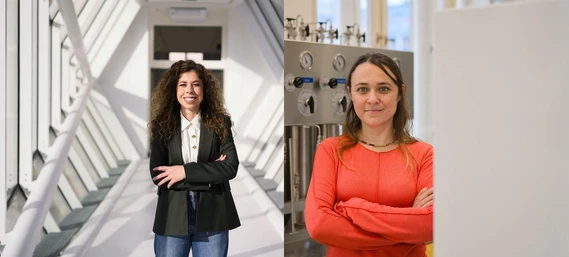
The University of Chemistry and Technology, Prague is a natural centre of first-rate study and research in the area of chemistry in Czechia and is one of the country's largest educational and research institutions focused on technical chemistry, chemical and biochemical technologies, material and chemical engineering, food chemistry, and environmental studies.
History
UCT Prague was founded in 1952 but its origins date back to 1807 when the first course in chemistry was delivered at Prague Polytechnic. Reorganization of the polytechnic in 1920 resulted in the transformation of the chemistry department into the School of Chemical Technology, one of the seven sections of the Czech Technical University.
A number of key figures of the history of chemistry relate to UCT Prague. Among them, three figures are renowned in their fields: Vladimir Prelog, Nobel Prize winner, Otto Wichterle, inventor of contact lenses, and Emil Votoček, author of the Czech chemical nomenclature.
Several presidents of the Czech Academy of Sciences – František Šorm, Rudolf Zahradník, and Jiří Drahoš – are connected with the school as well.
UCT Prague was the first Czech university authorised to provide the Eurobachelor degree. As its name indicates, this prestigious recognition certifies the quality of UCT Prague bachelor studies at the European level.
 Vysoká škola chemicko-technologická v Praze
Vysoká škola chemicko-technologická v Praze
Research University
According to the prestigious Times Higher Education rankings, UCT Prague, one of five Czech universities, ranks among the 4% of the best world universities. The school has also dominated the rankings of the Education Policy Centre of Charles University in the category “Emphasis on Science, Research and Creativity” category.
Currently UCT Prague boasts a number of excellent experts such as Jana Hajšlová, member of the EU Advisory Group “Food Quality and Safety” or František Štěpánek, who has been awarded an ERC grant.
Half of its income is generated from the institution's creative activities focused on science, research and innovation. In the Czech context, this is an extraordinary accomplishment.
Research profile
UCT Prague conducts highest-quality basic and applied research in chemistry, biochemistry, technical chemistry, chemical and biochemical technologies, chemical engineering, food science, and environment science, with active publication activities focused on professional, impact factor-ranked journals, books and book chapters, patents, utility models, implemented technological components, and other outputs of applied research. UCT Prague fosters active, close cooperation with industrial partners, translating and transferring scientific knowledge into practice and participating in developing innovations and applying R&D to real-world industrial settings.
Across UCT Prague, scientific teams are intensively involved in various national and international cooperative R&D efforts, participating in a wide range of research projects funded with both public and private sources.
UCT Prague offers ideal science and R&D facilities. Individual research groups are equipped with top-notch instruments, and central laboratories provide numerous, unique high-tech research devices.
We have state-of-the-art technology
The University of Chemical Technology in Prague can boast, among other things, state-of-the-art instrumentation. The instruments and equipment is located not only in the Central Laboratories, but all accross the university in the laboratories of individual institutes. Besides the research and development, the equpment is also available to the students, offering an opportunity to work on the state-of-the-art instruments during regular lectures and during their research projects.
 The University of Chemistry and Technology, Prague
The University of Chemistry and Technology, Prague
 The University of Chemistry and Technology, Prague
The University of Chemistry and Technology, Prague
 The University of Chemistry and Technology, Prague
The University of Chemistry and Technology, Prague
 The University of Chemistry and Technology, Prague
The University of Chemistry and Technology, Prague
 The University of Chemistry and Technology, Prague
The University of Chemistry and Technology, Prague
News

JUNIOR STAR Grants at UCT Prague: Two talented women from abroad driving innovation in science

A scalpel that can diagnose? UCT Prague scientists published a new diagnostic tool concept
Wrote about us

